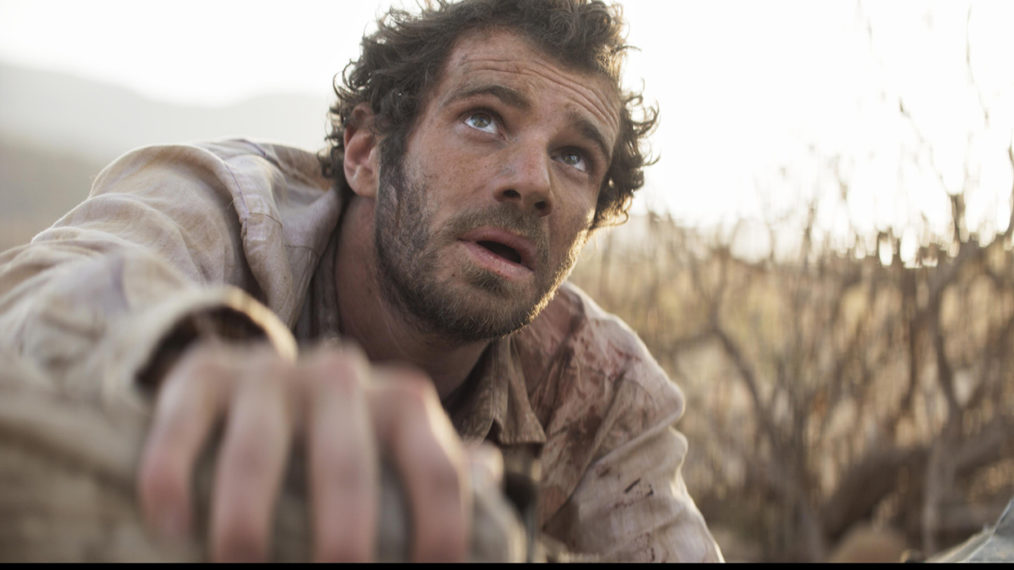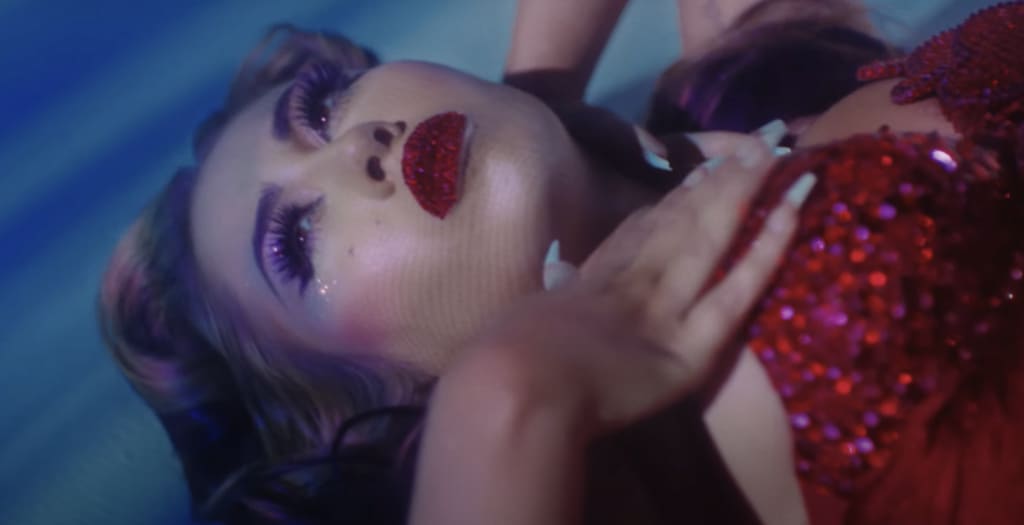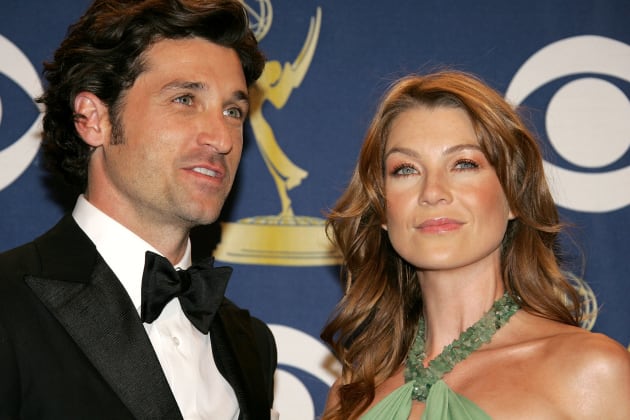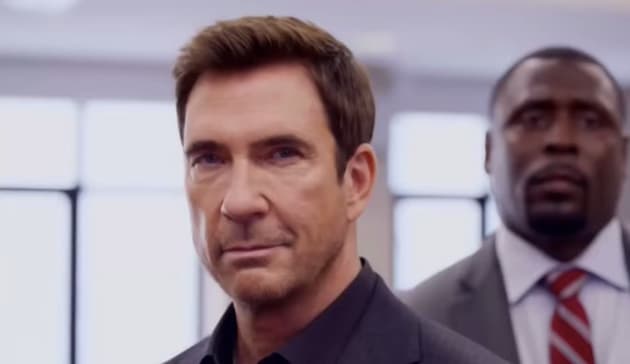#‘Tiny Beautiful Things” Liz Tigelaar Talks About the Tightrope Walk of TV Adaptations

When writer Liz Tigelaar isn’t on set, in her Fox lot bungalow office or at the Venice home she shares with her wife, their 7-year-old son and two French bulldogs, she occasionally relaxes (and, yes, works) from one of the tonier trailer parks on the planet: Malibu’s Paradise Cove. That’s where she’s shared a petite beach house with longtime friend and fellow TV producer Erica Messer (Criminal Minds) and her family for the past decade. “We joke that we remodeled it with the efficiency of two showrunners,” says Tigelaar. “It was just ‘Yep! Yep! Yep!’ … The quickest choices possible.”
Since creating her first series, The CW’s Life Unexpected, back in 2009, Connecticut native Tigelaar has become one of the most sought-after scribes in the adaptation business — shepherding spins on Celeste Ng’s Little Fires Everywhere, Cheryl Strayed’s Tiny Beautiful Things (out April 7 on Hulu), the upcoming Under the Bridge from the late Rebecca Godfrey and The Seven Husbands of Evelyn Hugo from Taylor Jenkins Reid. It’s a role that causes both elation and anxiety. “You risk letting the author down,” says Tigelaar on a recent rainy L.A. afternoon, “and that transcends career or even ego for me.”
Tiny Beautiful Things is your latest series for Hulu, which, as far as its ownership, has become a hot potato. What’s the vibe there now?
Hulu’s been my home for so long. When I first got there, it was like a red cup party in college. Everyone was just kind of boozy and enthusiastic, like, “Let’s do this! Television!” It’s definitely changed, but I want to keep working there for a long time. I’m sure there’s a lot of uneasiness, but there’s a lot of uneasiness across the whole industry.
You created and ran your first show, Life Unexpected, pretty early in your career, and then you had a long run as a journeywoman writer. Was there a part of you that felt like, “Where’s my show?”
No, I felt like I had by some great miracle gotten a show. (Laughs.) But after [Life Unexpected] ended, someone wanted me to do a project at ABC and they said, “Well, this could be your slam dunk! You’ll have another series on the air within six months.” Well, who says that’s my goal? It was something I didn’t really want — it’s that weird mentality of, “Now the goal is just to get something else on the air as quickly as possible.”
You’ve since had several of your own shows. Could you go back?
And be on staff? Yes. I tried to get on Fleishman Is in Trouble so bad. I was like, “I’m available. Hire me! I’ve got an overall with ABC Signature. Anything you need, I’m here!” Everyone was like … “Thank you. We’re good.” (Laughs.) There are shows I would die to get on, so I could totally see going back on staff. But I think I’m much more annoying in that capacity. When you’re on staff, you have all these ideas and you want someone else to love them and run with them. When you’re running a show, you’re constantly generating ideas, but you also get to be receptive to everyone else. That’s probably a better spot for me because I get real passionate.

Photographed by Yasara Gunawardena
Who do you consider a mentor?
One was [My So-Called Life creator] Winnie Holzman. I worked as her assistant, and just being in her orbit was so informative. My most practical, hands-on mentor was Josh Reims. He was the one who pulled me aside in my youngest days in a writers room and said, “Hey, if you pitch something three times and nobody’s responded, stop pitching it.” But in the most loving, caring way.
A lot of your recent work has included your actors as fellow executive producers. How does that impact the job?
On Little Fires Everywhere in particular, I did not feel like the episodes were done until after the table read with [Reese Witherspoon and Kerry Washington]. Before that show, I was taught to almost be fearful of actor notes. Sometimes, when you’re on someone else’s show and you’ve done, like, 8,000 network notes before you get to set, you don’t want to explain why something works. You’re like, “I don’t even fucking know anymore!”

Photographed by Yasara Gunawardena
What changed?
I realized you’re not running the gauntlet. Notes used to feel like an obstacle course: the studio, the network, the actors, all milestones. Kerry and Reese were so supportive, I never felt like they were something to get through.
You’ve worked with Hello Sunshine a lot. What’s a Reese note like?
I wanted to tweak the end of Little Fires Everywhere [from the book] so that there would be some surprise, and I remember her saying, “Who would be the craziest person to burn this house down?” And I was like, “Elena. If [your character] burns her own house down, that’s the most insane thing.” And Reese was like, “I’m sorry, but what grown woman burns her house down to make a point?” That was a great note. You get caught up with your own bad ideas and then you need someone to bring you back down.
Prior to Little Fires, you were in an early iteration of The Morning Show writers room. Why did you leave?
I was so obsessed with that book [Brian Stelter’s Top of the Morning]. I even interviewed when I had pink eye or a swollen jaw or something because I wanted to be on that show so badly. But to get on Morning Show, I had a general with Hello Sunshine and hit it off with [president] Lauren Neustadter. That was how Little Fires really came about. So, I always knew I was going to do Morning Show for eight months until I started on Little Fires. What I didn’t expect was that in eight months we wouldn’t have finished the season. I think we went through three different incarnations of rooms and by the time eight months had hit, maybe we were breaking episode three?

Photographed by Yasara Gunawardena
Judy Blume’s Are You There God? It’s Me, Margaret has finally gotten an adaptation 53 years later. As someone who developed another of her books, Summer Sisters, why do you think so little has been translated to film and TV?
People diminish the importance of stories about young women. They just put them into a category. Summer Sisters got passed on because it was considered too YA and Hulu wasn’t doing YA at that time. But you wouldn’t say Normal People is a YA story, even though it’s people in high school and college and just a little beyond. But I think everyone is giving those stories another look now because they realize how weighty and important those experiences are. It’s who we all were once, and those versions of us still inform how we operate in the world.
Do you feel more pressure adapting others’ work?
I wanted to do that show for Judy Blume most of all. I wanted to have it be successful for her. And I think that that’s the risk you take when you work with these authors — Cheryl, Celeste, Judy. You risk letting them down — and that transcends career or even ego, for me.
Was Summer Sisters the most difficult no you’ve gotten?

Photographed by Yasara Gunawardena
Well, there’s another. Amy Talkington and I are both obsessed with Tonya Harding, and we wrote a six-episode limited series with her as our feminist hero. She’d been working on it as a feature around the time that I, Tonya got set up — so UTA suggested pivoting to a series. It was called Ice Queens. Amy, Rosa Handelman and I went nuts on Tonya Harding and the 1990s for six months straight. We were so close to shooting it that I was looking into Vancouver preschools for my kid.
What went wrong?
It was at A&E, but Netflix had come on for international — and it fell apart because of legal stuff. Like, “If Nancy Kerrigan sues in Uzbekistan, who’s responsible?” If we got sued in another country, no one could settle on whether it’d be the studio or Netflix who’d pay. It’s probably my biggest heartbreak to this day. We had all of the scripts. One episode opened with a Connie Chung and Maury Povich sex scene. It was awesome.
Interview edited for length and clarity.
This story first appeared in the March 29 issue of The Hollywood Reporter magazine. Click here to subscribe.
If you liked the article, do not forget to share it with your friends. Follow us on Google News too, click on the star and choose us from your favorites.
For forums sites go to Forum.BuradaBiliyorum.Com
If you want to read more Like this articles, you can visit our Social Media category.




